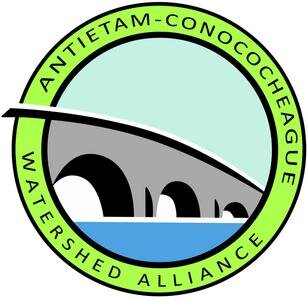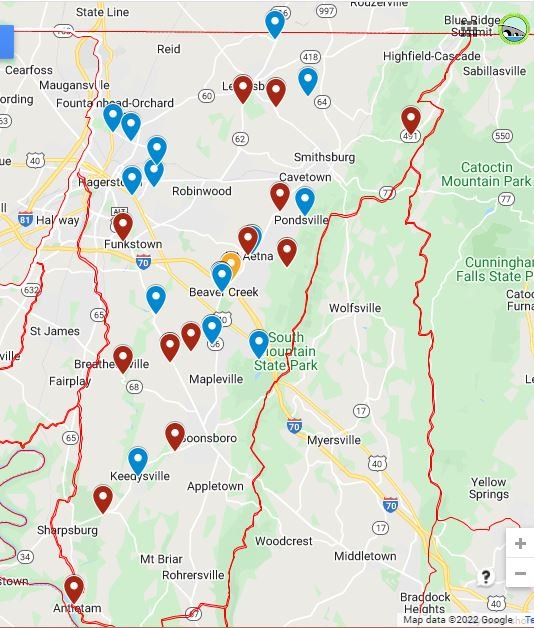Temperature loggers find area streams are heating up
Since 2019, volunteers with the Citizen Science program have installed numerous temperature monitoring loggers around the Antietam watershed to document temperatures in the summer months. The loggers are programmed to record water temperature every 15-20 minutes around the clock, starting on Memorial Day and ending after Labor Day. Volunteers follow the same methods the State of Maryland uses to monitor stream temperatures to ensure the data collected is accurate and comparable to other stream data.
In 2021, 27 loggers were deployed throughout the Antietam Creek watershed, from the farthest Maryland site where it crosses from Pennsylvania, south to where the Creek discharges into the Potomac River. Of the 27 loggers, nearly half of the loggers in the Antietam watershed exceeded the State temperature criteria, meaning these sites were too warm during the summer months for a healthy aquatic habitat. The criteria for upper temperature limits is dependent on each stream’s State Use Class designation. For example, streams designated as “Use Class III - Non-tidal Cold Waters” are known to support (or at least one time did support) reproducing trout populations and require the coldest temperatures. The upper temperature limit for this Use Class III is 20C (68F). The Antietam has three tributaries with this Use Class III designation: Beaver Creek, Little Antietam (north), and Marsh Run.
Streams are warming generally due to land use practices, primarily tree loss and land development. When rain falls on heated roofs and parking lots, the warmed runoff increases the stream’s temperature making the water undesirable for fish and insects, while also promoting plant and algae growth. Lack of shade from trees and shrubs also causes water to heat up quickly, especially in small, shallow streams.
By installing temperature loggers throughout the area, Citizen Scientists can identify where waters are most impacted by our land use practices. Water quality at these warm sites could be improved by planting tall vegetation along the stream banks and installing stormwater features that slows and cools hot runoff.
The Citizen Science program is a partnership with ACWA and the Beaver Creek Watershed Association. In addition to managing the loggers annually, volunteers also collect water quality data throughout the year. Volunteers are given training and hands-on experience while getting know their local waters.
To learn more about the ACWA/BCWA Citizen Science program visit the ACWA Citizen Science webpage. If you have a site where you feel is warming our stream waters and are interested in corrective measures, email us



